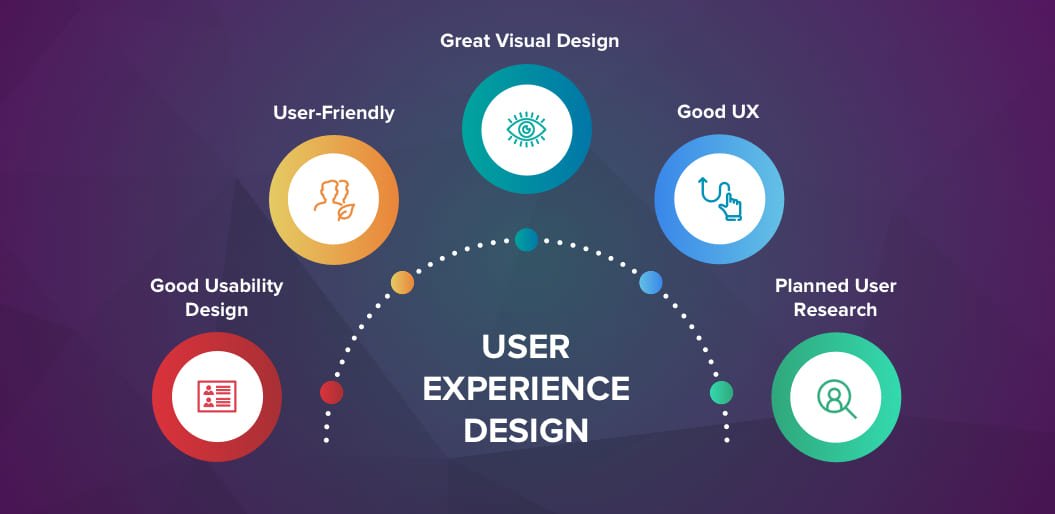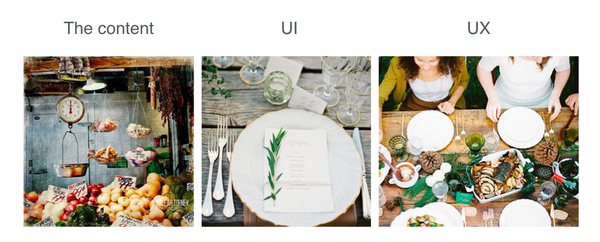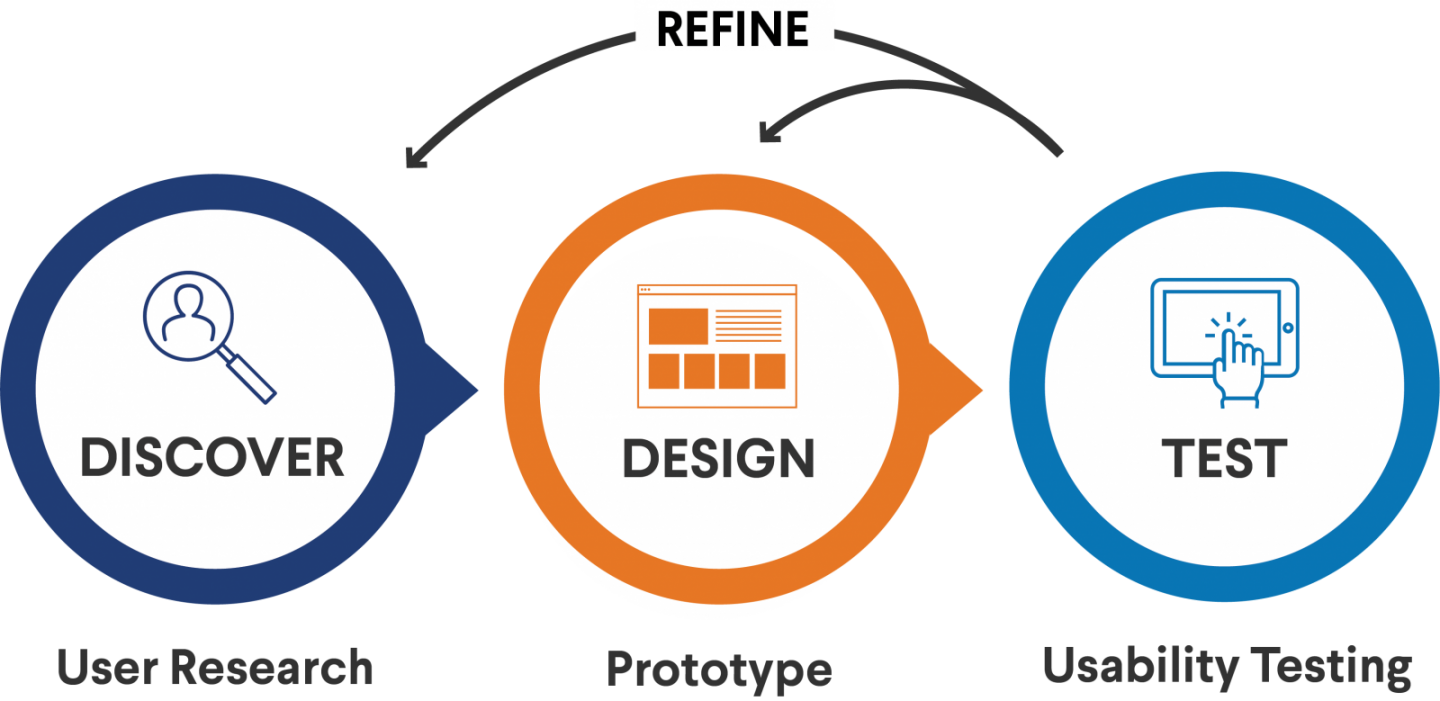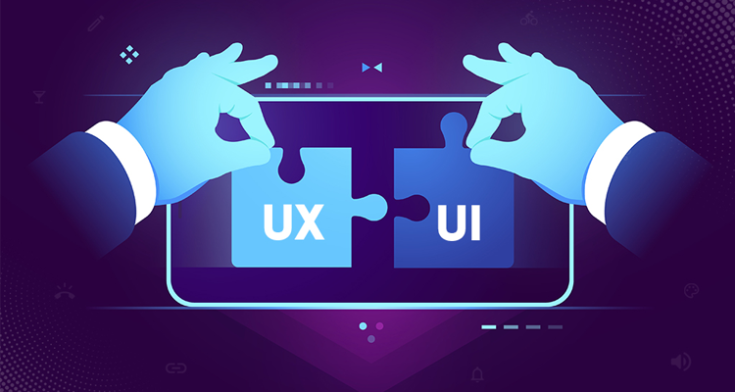It’s a Human-Centered World!
People work for People.
Technology works for People.
Even the devices built, work for People.
When every innovation or advancement, taking place, revolves around users, customers, and their variegated experiences why do businesses still believe that a good product or service could essentially sell itself?
Again, read the first line. Did it strike something?
No matter the industry or sphere you work in, this materialistic audience crave enhanced digital experiences at each step of progression.
Let’s commit a few facts about User Experience first:
- User Experience is the most Voluminous Keyword of the Internet Product Development sphere.
- User Experience has an upthrust and crosses every bar of the ladder each day. (growing user expectations)
- User Experience begins within 17microseconds of a visitor/user landing up to a website, a device, an app, or even while utilizing a service.
I believe these certitudes are enough to make you realize the significance the term carries with itself.
Grabbing the conceptual and contextual theory, let’s slide towards the business perspective of UX and spotlight some major aspects concerning the keyword.
User Interface (UI) & User Experience (UX)

User Experience defines and describes each interaction your customers have with your product or service or brand.
User Interface is what the user is going to use or the part of your product/service he interacts with (like screens, buttons, icons, features, etc.)
Concerning both these terms, remember:
“The exposure of your brand and its assets is no longer limited to just knowing about the product, instead, it expands to the experience of purchasing and using the product as well.”
A good experience with a good impression always reflects great benefits in visits, conversions, sales, and ROI.
UX is the UI?
As a matter of fact, a user interface is an interface between the customer and the business.
Thus, the UX design is UI design we build by all the effective means through which the business and customer connect.

While experimenting with a product, say an application, we don’t realize that when we evaluate the user experience, we unknowingly gauge the usability of the product and the vice-versa is also true.
UI/UX Design, What it is all about?
UI/UX Design is a design philosophy that seeks to create products that solve the problems or needs of users, achieving the highest satisfaction and the best possible experience when using them and with minimal effort.
The maxim of this way of designing is to build a product that manages to satisfy as much as possible what the customer demands thanks to knowing it thoroughly.
User experience design can be applied to any type of product: from a refrigerator, a television to a car or software.
And it is that what has to be clear to you is the objective of the UX: to create a unique experience adapted to your client.
In other words, when it comes to web pages, it makes it easier for users who visit your website to navigate so that they can find what they want and what you offer in the simplest way possible.
Therefore, you need to know what needs your users have, align them with the objectives of your business, and taking into account your technological or technical limitations.

A perfect UI/UX design checks on the following critical factors that further offer conversion opportunities and competitive benefits:
The Usability
It is simply to improve the ease of learning and efficiency. The usability of your product gets enhanced when the interaction designers make it easy for users to learn and experiment with a new product in the most natural way.
Information Architecture
Its the element that is responsible for meeting the needs of the visitor by connecting users with content in an organized and classified way, making it easier to locate.
Graphic Design
The visual and graphic elements (fonts, colors, icons, images, etc.) are used to attract the attention of users and make their browsing experience more pleasant and positive.
Mobile First
Keeping mobile phones at an arm’s distance, UI-UX designs must be adapted to the mobile environment which means the design and layout must be perfectly visible both on computer and mobile alike with the standard settings.
Prototyping
Prototypes guarantee a good web design by testing their preliminary versions and ensure their feasibility and suitability as per the purpose of the project. It’s a useful element that gives an idea about the functionality of the design before applying it.
The Satisfaction
If your UI-UX designs combine usefulness and usability, provided your product delivers value and quality then it will certainly reach the expected levels of user contentment. The user’s greatest satisfaction is proportional to the value and experience rendered in terms of performance, quality, and vision.
[Prefer Reading: “Can Design-Development Phases be Leveled with Prototypes?”]
What makes a Good UI Design?
User Interface and User Experience are similar in a context where they have a proportional dependency too, thus, it can be said that a good user interface can create a positive user experience.

A good user design at its core is:
- Useful:
The content of your website has to be original and satisfy the needs of your client.
- Usable:
our website has to be easy to use and navigation has to be simple and intuitive.
- Desirable:
Your website has to generate emotions and good feelings in your users through the images, the corporate image, the identity, your brand. This part is more focused on UI design but it must also be taken into account in UX.
- Findable:
The content of your website has to be navigable and locatable both within your own page and outside (SEO).
- Accessible:
Your content must be visible to your users and accessible to people with disabilities.
- Credible:
Everything you publish on your website has to be reliable and as transparent as possible. You have to create a sincere connection with the user.
- Valuable:
You have to make sure that the content and information you offer is unique and of value to your user.
All in all, it is compelling, delightful, and emotive that fulfills a user’s inward desires when first interacted with your digital product.
“A human-centered design understands the end-user.”
Thus, the present need is to build Human-Centered Designs that focus on Research, Empathy, and User Experience.
The vital sections of a website or an app that derive their most interest are:
- The Logo
- Main Navigation Menu
- Search Box
- Feature Image
- The Content
- The Bottom/the End
This proves that first impressions are 94% Design related where the look and feel of your digital product are highly responsible for influencing the audience. Poor UI/UX design is associated with rapid rejection and mistrust that adversely affects the user’s first impression of using your product or service.
[Prefer Reading: “How does Personalization help to Scale App User Experience?”]
Where NetSet Can Play a Role?
UI and UX are a world to discover and we at NetSet help you explore their realm in the most efficient way, taking a fast track. Our design experts are able to bring life to design ideas, employing the best practices during the entire design process, from start to finish.
Get human-centered user experience designs ready for your next digital product that offers an irresistible and inevitable user interaction within a stipulated interval of time. We ensure your UX is your X-factor, helping you with every step of your user experience design journey.


No comments:
Post a Comment